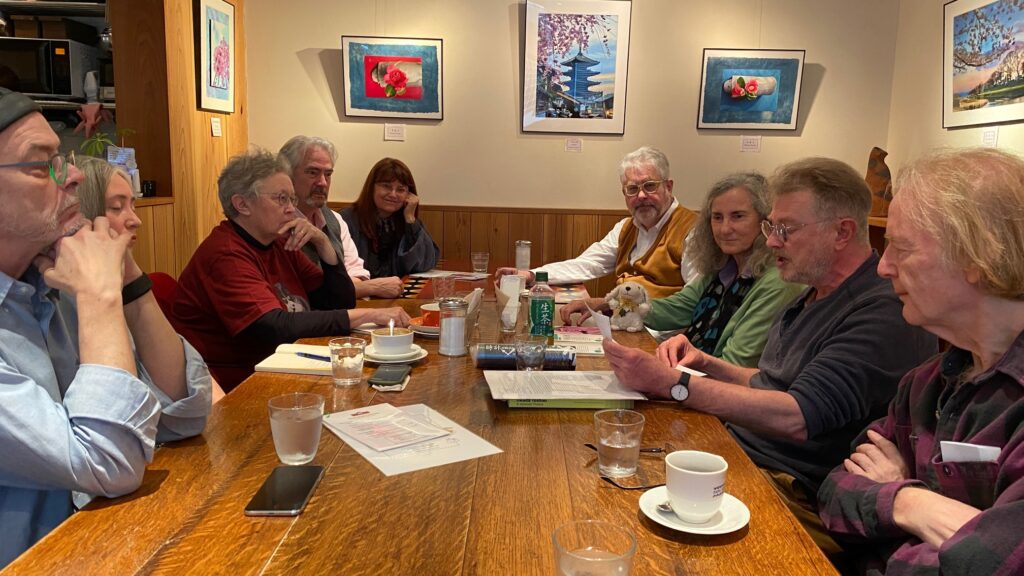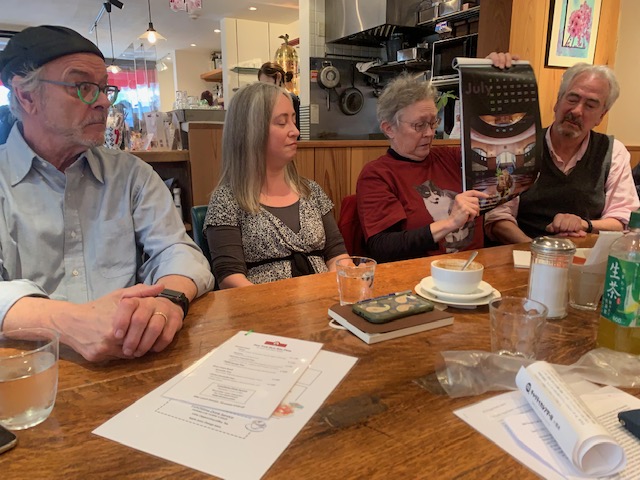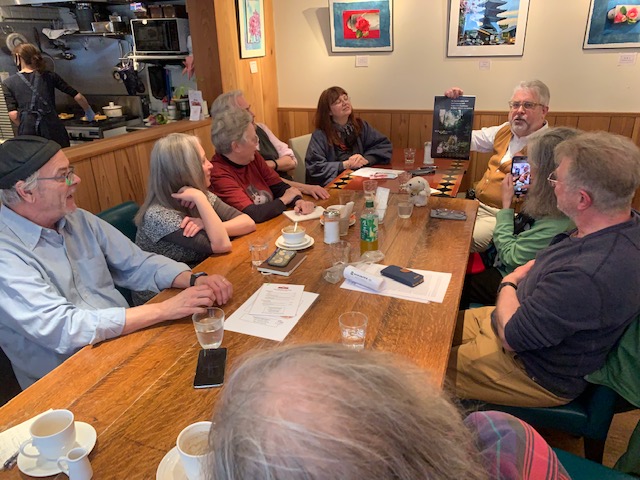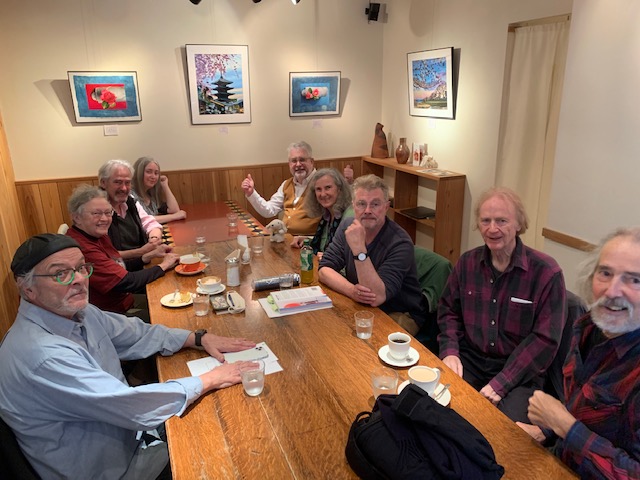ANOTHER WORLD
Mark Cody Poulton (PhD, U of T) has been teaching Japanese language, literature and theatre in the Department of Pacific and Asian Studies since 1988. His recent research has focused on Japanese theatre and drama, particularly of the modern period. He has also been active as a translator of kabuki and modern Japanese fiction and drama, for both publication and live stage productions in Canada, the United States, Europe, Australia and Japan. In addition, he has been collaborating with Hiroko Noro on a number of projects using drama for Japanese language pedagogy. He is also interested in pilgrimage and the Kumano region of Japan, and in the culture of Japanese cuisine.
Twelve people gathered for lunch and a very interesting talk by Cody Poulton at Papa Jon’s at Rokkaku. Thanks to Charles Roche for making this very lovely venue (in food and atmosphere!) available to us. We were all very glad to see each other “in the flesh” again and hope these live meetings will continue.
Cody Poulton, a Canadian and longtime resident of Japan, expert on various Japanese theatrical forms including Noh and modern drama, gave a very interesting talk mostly about modern Japanese theatre. It felt to me like glimpsing another world, one which I myself knew nothing about, but that glimpse was fascinating. It’s always interesting to find out what keeps other people awake at night (or, conversely, helps them sleep soundly) — in other words, the biggest love of their life, and this was no exception.
The two “big names” I took from the talk were the Japanese Meiji-Taisho era novelist and recounter of the supernatural, Izumi Kyoka, and the 1960s avant-garde theatre producer, Kara Juro, whose “Red Tent” theatre still holds performances in Shinjuku. In the 1960s, a turbulent era for the whole world, dramatists were at the vanguard of change in Japan.
Drama itself is a “perishable” art form, in that no two performances are ever alike, and this gives a feeling of ichigo ichie (“making the most of every moment”) to it, which is a very Japanese concept spanning many different art forms.
Cody read some excerpts from synopses of a couple of modern Japanese plays, which contained a lot of what I would call surrealism. He introduced a book he had helped to edit, which was authored by the well-known Japanese playwright and producer, Okada Toshiki. At the end, he also passed around a calendar he had received from Joshua Breakstone, and since there were exactly twelve of us, we took turns reading the poem shown on each month, which caused much laughter. I for one would like to see such “audience participation” material in other talks by WiK. The mood as we broke up our meeting was excellent.
Perhaps one of the poems from this calendar, which was entitled (in English) “Clocks in Anamorphosis”, might sum up the atmosphere of this talk. Here is January:
If Clocks go Back and Forth
It’s Snowfall Upside Down
When Anamorphosis in Recollection
It’s Prosody Deepens.
**********************
Cody Poulton also recently contributed an essay on plants in Japanese culture and particularly the Noh theatre to the latest Kyoto Journal (no. 104).




